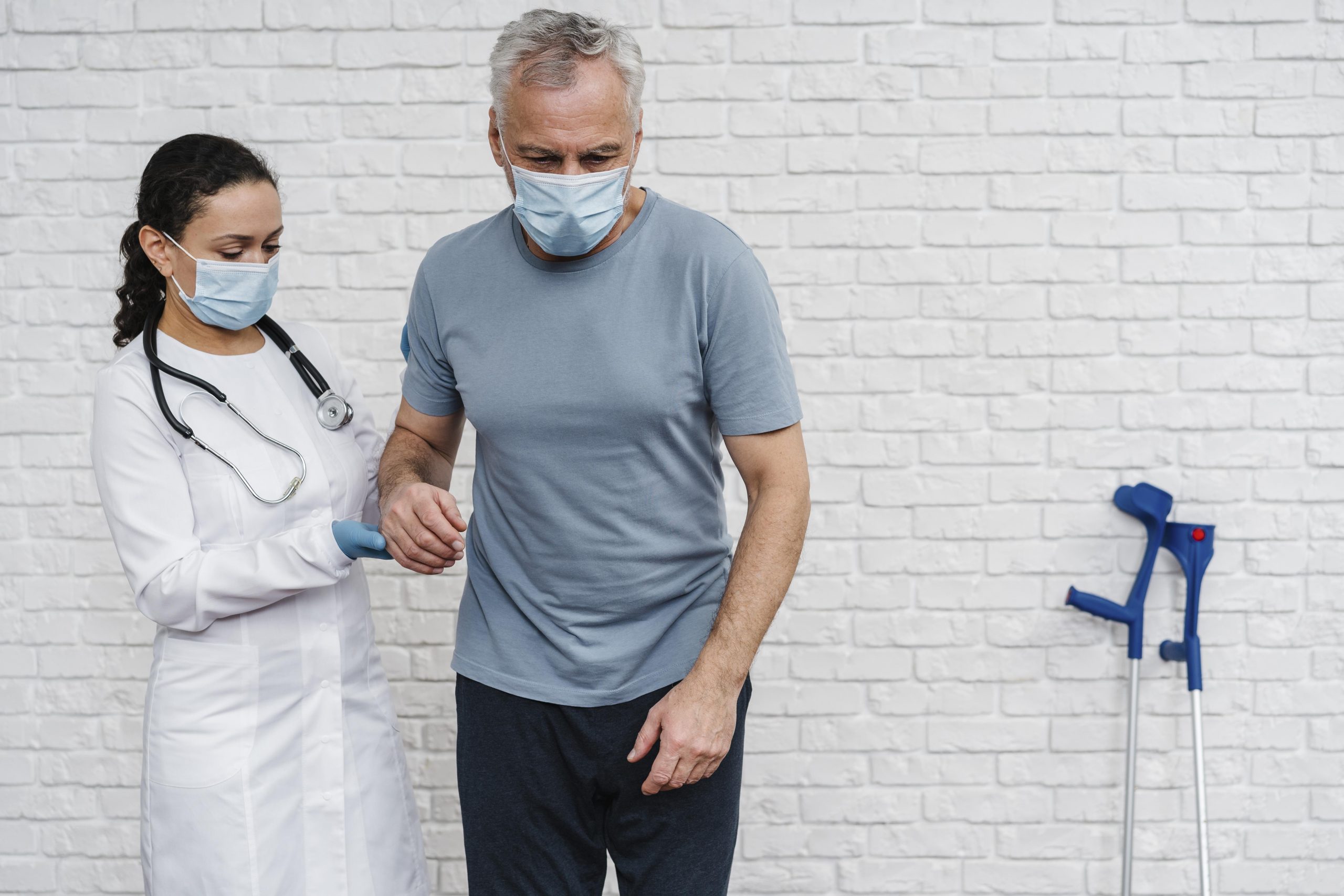

Individuals with autoimmune rheumatoid disease who experience long COVID are more prone to exhibit changes in levels of inflammation-triggering antibodies specific to a common cold-causing coronavirus, as per research conducted by HMS researchers from Brigham and Women’s Hospital, Massachusetts General Hospital, and the Ragon Institute of Mass General, MIT, and Harvard.
These findings, published on September 6 in Science Translational Medicine, provide a significant insight into the origin of long COVID, a perplexing syndrome estimated to impact approximately 65 million people globally.
In particular, the analysis suggests that individuals who have previously been infected with a common cold coronavirus and have elevated antibodies against it may have their immune systems primed, potentially increasing their susceptibility to developing long COVID.
However, the researchers emphasize that this mechanism is unlikely to explain all instances of long COVID, as it may be influenced by diverse mechanisms that vary among individuals.
Additionally, the study’s scope was limited to individuals with rheumatic diseases, and further investigation is required to determine whether these findings are applicable to a broader population without autoimmune disorders. Nevertheless, the study’s findings serve as a significant indicator that a person’s viral history before the pandemic could play a role in modifying their risk of developing long COVID.
“Our study offers evidence and explanation for why some of our patients may be experiencing the persistent and wide-ranging symptoms of long COVID,” said study co-corresponding author Zachary Wallace, HMS assistant professor of medicine in the Division of Rheumatology, Allergy, and Immunology at Mass General. “Identifying a biomarker that helps us better understand current and previous infections could shed light on an inappropriate immune response that leads to some cases of long COVID.”
As Wallace suggested, beginning with individuals with rheumatic diseases could enable researchers to identify biomarkers that help identify those at elevated risk of developing long COVID. This approach would facilitate the strategic selection of individuals for clinical trials aimed at preventing or treating long COVID.
“This study represents an important step in that direction,” Wallace said.
Approximately 45% of individuals with rheumatic diseases, encompassing conditions like rheumatoid arthritis and other chronic autoimmune disorders marked by inflammation, continue to endure lingering symptoms related to long COVID, even 28 days following an acute SARS-CoV-2 infection. Moreover, patients with rheumatic diseases face an elevated risk of experiencing severe illness and complications during the acute infection phase.
Since the onset of the pandemic, Wallace and his colleagues at Brigham and Women’s and Mass General have placed particular emphasis on studying this patient group, aiming to glean valuable insights that could inform their treatment and contribute to the broader understanding and care of patients dealing with long COVID.
“At the very beginning of the pandemic, we joined forces to identify every rheumatic disease patient with COVID seen at our institutions so that we could follow their clinical course and collect survey and blood data,” said co-corresponding author Jeffrey Sparks, HMS associate professor of medicine in the Division of Rheumatology, Inflammation, and Immunity at Brigham and Women’s. “At first, we thought we might be doing this for a month or two, but the work continues today, and we are gaining important insights about a potential immune mechanism that may lead to long COVID, especially among patients with rheumatic disease.”
Wallace, Sparks, and their team conducted an examination of immunological alterations in individuals with rheumatic diseases who had recuperated from COVID-19. They assessed antibody reactions against different components of SARS-CoV-2, making comparisons between those who experienced long COVID and those who did not. The objective was to discern disparities in the immunological patterns associated with past infections. Surprisingly, they identified a notable association with OC43, a coronavirus responsible for mild, common cold-like symptoms. Individuals afflicted with long COVID exhibited a higher likelihood of possessing antibody responses specific to this particular coronavirus strain.
“When it comes to viruses, first exposure can shape lifelong immunity,” said co-corresponding author Galit Alter, who was a part of this work while at HMS and the Ragon Institute before joining Moderna Therapeutics in October 2022. “We know that, in the setting of influenza, previous exposure to a viral strain can influence a person’s immune response to subsequent strains. This concept — which we call ‘original antigenic sin,’ may be at play for coronaviruses too and may influence risk of long COVID, especially among individuals with rheumatic disease.”
The research team intends to continue their study on biomarkers for long COVID, including the OC43 indicator. This endeavor holds promise for developing diagnostic tools, therapeutic approaches, and more precise clinical trials for testing potential interventions.
more recommended stories
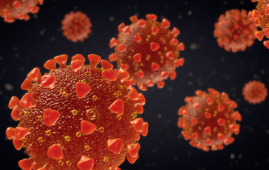 Study Reveals Cold May Impact SARS-CoV-2 Infection Rates
Study Reveals Cold May Impact SARS-CoV-2 Infection RatesThe Unexpected Protective Role of Rhinoviruses.
 Heart, Lung, & Brain Risks Persist in COVID-19 Survivors
Heart, Lung, & Brain Risks Persist in COVID-19 SurvivorsA French nationwide study reveals that.
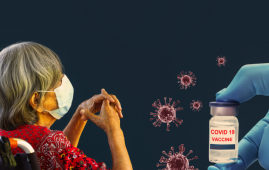 How COVID-19 and Vaccines Differ in Heart Inflammation
How COVID-19 and Vaccines Differ in Heart InflammationA team of international researchers led.
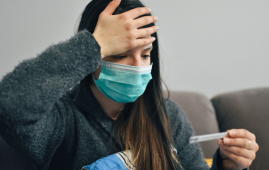 Long COVID: Extended Paxlovid Treatment Offers Hope
Long COVID: Extended Paxlovid Treatment Offers HopeA new case series by UC.
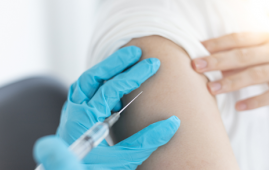 RSV Vaccine Response in Immunocompromised Adults
RSV Vaccine Response in Immunocompromised AdultsAccording to Johns Hopkins Medicine researchers,.
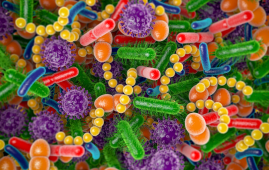 Gut Microbiome Predicts Long COVID Risk
Gut Microbiome Predicts Long COVID RiskIn a recent pre-print study published.
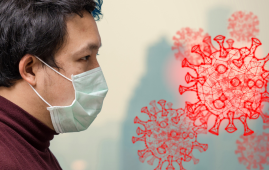 COVID-19 & Autoimmune Care Hope: Natural Proteins
COVID-19 & Autoimmune Care Hope: Natural ProteinsRecent research at Umeå University reveals.
 FasL Inhibitor Asunercept Speeds COVID-19 Recovery
FasL Inhibitor Asunercept Speeds COVID-19 RecoveryA new clinical trial demonstrates that.
 Impact of COVID-19 mRNA Vaccine on Myocardial Scarring
Impact of COVID-19 mRNA Vaccine on Myocardial ScarringA new study found a greater.
 Long-term Cognitive and Psychiatric Issues in COVID-19 Survivors
Long-term Cognitive and Psychiatric Issues in COVID-19 SurvivorsA new study published in The.

Leave a Comment